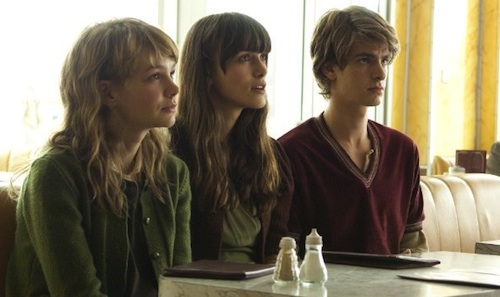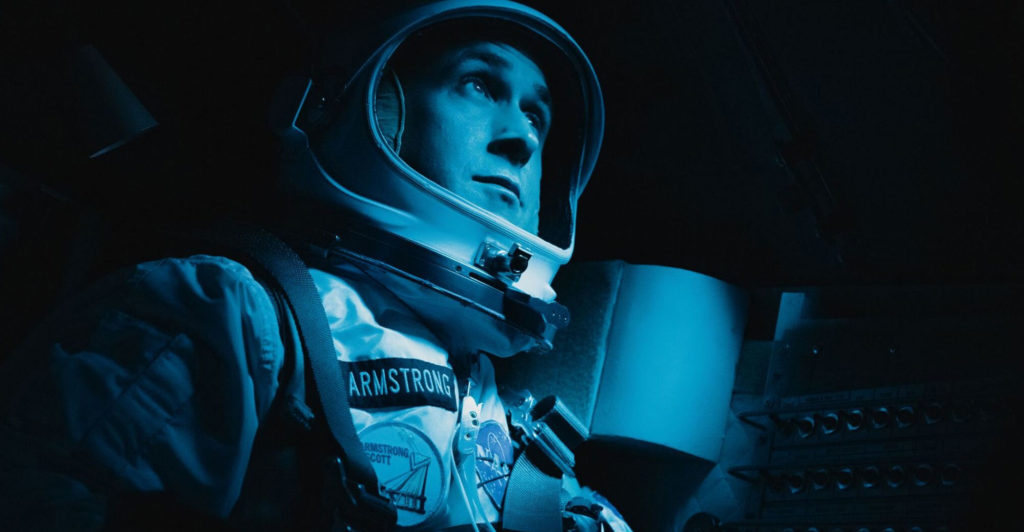
If you were bred only so that your organs could be harvested to keep someone else alive, what would you do? Would you revolt like the clones in Michael Bay’s The Island? Or would you run for your life like the organic worker robots of Blade Runner?
Never Let Me Go, Mark Romanek’s surprisingly successful adaption of Kazuo Ishiguro’s celebrated novel, suggests that most people would simply accept their fate with the same resignation with which most of us face the inevitably of death and taxes. Though many viewers will find its tone and pacing to be a little icy, this melancholy film lingers in the mind long after the credits have rolled.
Ishiguro’s novel is one of the finest books of the past decade and already a classic of dystopian fiction. Alex Garland’s script and Romanek’s direction do an admirable job of capturing the timbre of a thematically complex book that deals in subtle shadings rather than grand revelations.
Their film treatment is fairly faithful to the book, which centres on a love triangle between three young adults who grew up together in a boarding school for “donors” and live only to eventually gift their organs to others. At Hailsham, the bright but quiet Kathy (played by Carey Mulligan) falls in love with the hot-headed Tommy (Andrew Garfield), who ends up pairing with her best friend Ruth (Keira Knightley).

The story tracks the conflicted relationships between the three into adulthood as they wait for their ‘donations’ to bring their lives to come to a truncated end. The children of Hailsham wistfully yearn for a little more time to live, but have no option besides docile surrender to authority on their minds. Perhaps that’s closer to the truth of how most people would act in their position than we’d care to admit.
Never Let Me Go is beautifully shot and tastefully scored in a manner that brings to mind Merchant-Ivory’s masterful treatment of Ishiguro’s Remains of Day rather than the work of any current science-fiction director. This alternate history has none of the garish neon lights or shattered landscapes of most of the dystopias we have seen in more recent films.
It’s a vision of England that harks back to the grey landscapes and stiff upper lips of the post-World War 2 country, far from multicultural Cool Britannia. The brutality of its society is masked under Orwellian bureaucratic language. The eventual death of a donor who has had one organ too many plucked from her body is called “completion”, for example.
As a film where many thoughts are left unspoken and where much of the action is interior to the characters, Never Let Me Go hangs off the superb acting from most of the cast. Izzy Meikle-Small, Charlie Rowe and Ella Purnell as the childhood versions of the three main characters carry the first third of the film, supported by the incomparable Charlotte Rampling as one of their school mistresses.
Garfield — recently seen as Mark Zuckerberg’s jilted business partner in The Social Network — and Mulligan (nominated for an Oscar for her performance in An Education) both manage to create empathy for characters that occasionally come across as frustratingly inert. Knightley is the weak link as the flighty, selfish but ultimately tragic Ruth. She is outclassed by her co-stars and also struggles with a script that smudges the careful colouring of her character in the novel.
Never Let Me Go trailer (via YouTube):
Romanek understands that Ishiguro’s book was never intended to be a study of the mechanics and morality of human cloning. His film seldom falls prey to the temptation to pad Never Let Me Go with exposition and it is at its worst when it does. There’s a coda and an introduction that make explicit what the book only hints at. They rob the film of some of its quiet, devastating power by putting into words things that should remain unsaid.
But just like the novel, Never Let Me Go is a haunting meditation on mortality and the comforts of memory, as well as an exploration of the ways that the adult world dupes children so that they too will grow into well-behaved grown-ups that don’t question their place in the world. The delicacy of Ishiguro’s vision remains intact. — Lance Harris, TechCentral
- Subscribe to our free daily newsletter
- Follow us on Twitter or on Facebook




